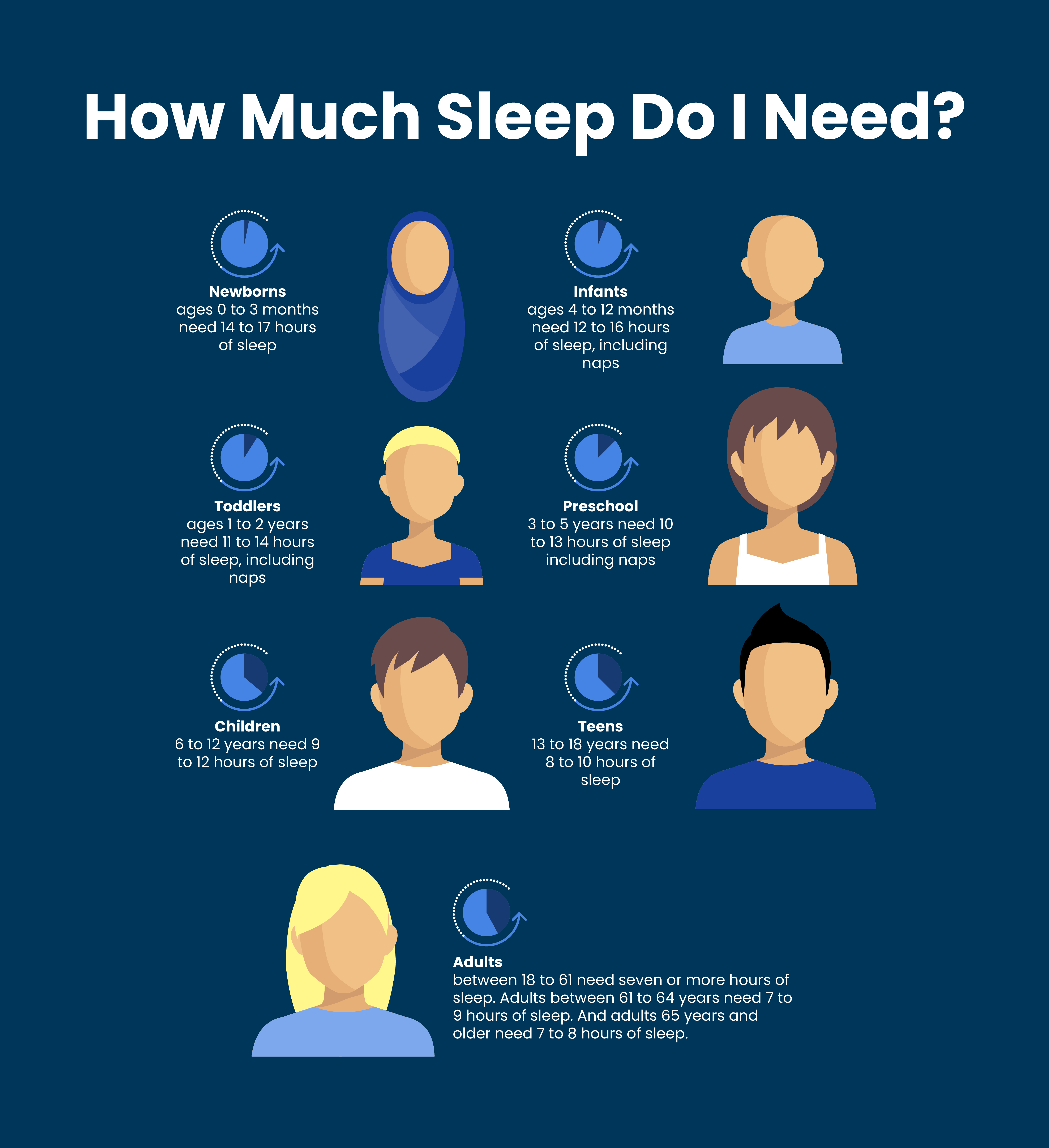How much sleep do you need? This essential question varies significantly from person to person, reflecting the unique demands of our bodies. While experts typically recommend an optimal sleep duration of around seven to nine hours for most adults, factors such as age, lifestyle, and overall health influence these needs greatly. Understanding your individual sleep requirements is crucial for enhancing sleep quality and reaping the numerous benefits of napping or consistent rest. If you find yourself struggling with sleep disorders or insomnia, it’s vital to explore solutions that can help restore your natural sleep patterns and improve your overall well-being.
Exploring the right amount of slumber is pivotal for maintaining good health and emotional balance. The duration of rest necessary for optimal functioning can differ widely among individuals. Whether it’s about sleep hygiene practices, the restorative effects of napping, or tackling issues like insomnia, each topic intertwines to reveal the importance of finding the perfect balance for restful nights. By understanding how rest impacts your life, you can address any sleep disorders you might face, paving the way for improved well-being and sharper focus in daily activities. It’s essential to consider the various factors that contribute to effective sleep, ensuring you can wake up refreshed and ready to take on the day.
Understanding Optimal Sleep Duration
Optimal sleep duration varies significantly among individuals, but a general guideline suggests that most adults require between seven to nine hours of sleep each night. This number is a good starting point, yet many factors contribute to what may be ideal for any particular person. Age, lifestyle, and even genetic predispositions can alter the amount of sleep one needs to feel fully rested. For instance, teenagers often need more sleep than adults, while older adults may find they wake up earlier and need slightly less total sleep time.
Going without an alarm and allowing your body to wake up naturally can be illuminating. If you consistently wake after about seven to eight hours but still feel tired during the day, it might indicate that your sleep quality is poor. Instead of simply focusing on hours spent in bed, it’s also crucial to consider whether you are experiencing the deeper stages of sleep when restoration occurs. Therefore, assessing both the quantity and the quality of sleep is vital for achieving optimal rest.
Frequently Asked Questions
How much sleep do you need for optimal sleep duration?
The optimal sleep duration varies from person to person. Generally, adults need between 7 to 9 hours of sleep per night. To determine how much sleep you truly need, consider how much rest you get without an alarm clock for a few days.
What factors influence how much sleep you need based on sleep quality?
Sleep quality plays a crucial role in determining how much sleep you need. Even if you are in bed for 8 hours, poor sleep quality can leave you feeling unrefreshed. It’s essential to create a calming bedtime routine to enhance sleep quality.
Can the benefits of napping affect how much sleep you need at night?
Yes, the benefits of napping can reduce the amount of sleep you need at night, particularly if you are sleep-deprived. Short naps can help improve alertness and performance, especially for night shift workers.
How do sleep disorders impact how much sleep do you need?
Sleep disorders, such as insomnia, sleep apnea, or narcolepsy, can significantly affect how much sleep you need. If you’re experiencing excessive daytime sleepiness or find that you’re not feeling rested after a full night’s sleep, it’s advisable to consult a sleep specialist.
What are effective insomnia solutions to help you figure out how much sleep you need?
Effective insomnia solutions include establishing a consistent sleep schedule, creating a relaxing bedtime routine, and limiting caffeine consumption before bed. Cognitive behavioral therapy is also recommended for long-term management of insomnia.
| Key Points | Details |
|---|---|
| Recommended Sleep Amount | Varies per person; ideally determined by observing sleep patterns without alarms. |
| Feeling Rested | Waking up tired after 8 hours may indicate sleep disorders. |
| Sleep Problems | Consider consulting a sleep doctor if experiencing irregular sleep patterns or excessive daytime sleepiness. |
| Sleep Hygiene | Create a calming bedtime routine; avoid screens and caffeine before sleeping. |
| Supplements and Medications | Melatonin is unregulated; long-term solutions like cognitive behavioral therapy are recommended for insomnia. |
Summary
Understanding how much sleep you need is crucial for your overall well-being. It’s important to identify your own natural sleep patterns, as they can vary significantly from person to person. Generally, sleep needs can be gauged by how refreshed you feel after several days without alarm clocks. If you continuously wake up feeling fatigued, it may be wise to consult a healthcare professional to rule out sleep disorders. Creating a relaxing bedtime routine can also improve sleep quality. Ultimately, emerging with effective sleep strategies will lead you towards a healthier and more alert life.
